Help your students learn the different homophones and their meanings with an interactive, whole-class game.
Explore Common Homophones with a Whole-Class Game!
If you’re getting tired of photocopying yet another homophones worksheet, then we have the solution for you!
This whole-class game is the perfect alternative to traditional worksheets. It has been designed by our experienced team of teachers to help your students explore the definitions of some of the most common homophones in the English language. Students will listen to the story as it is read aloud, then work through 11 questions as they match homophones to the correct definition and spelling. Some examples of questions included in the presentation are listed below.
How to Play This Homophones Game
- Distribute the homophones cards among your students. You may need students to work in pairs or groups, depending on your class size. There are 16 cards altogether.
- Read “The Very Strange Night” to your students. Every time they hear the homophone on their card, they need to stand up and sit back down again. Some homophones are used more
frequently in the story, so some students will be standing up more often. You can modify the activity by having students put their hand up or their hands on their head instead of standing up. - Once you have read the story once, have the students swap cards so they can listen out for a different homophone.
The homophones included in the story are: there/their/they’re, bye/by/buy, two/to/too, where/we’re/ wear, your/you’re, allowed/aloud.
How to Access This Homophones Game
This resource downloads as a full-color PDF. Use the Download button above to access.
Print on cardstock for added durability and longevity. Place all pieces in a folder or large envelope for easy access.
More Great Homophones Activities
Looking for more great teacher-created resources to bring your homophones lessons to life? Check out the suggestions below!
[resource:2656338] [resource:4998586] [resource:4997689]
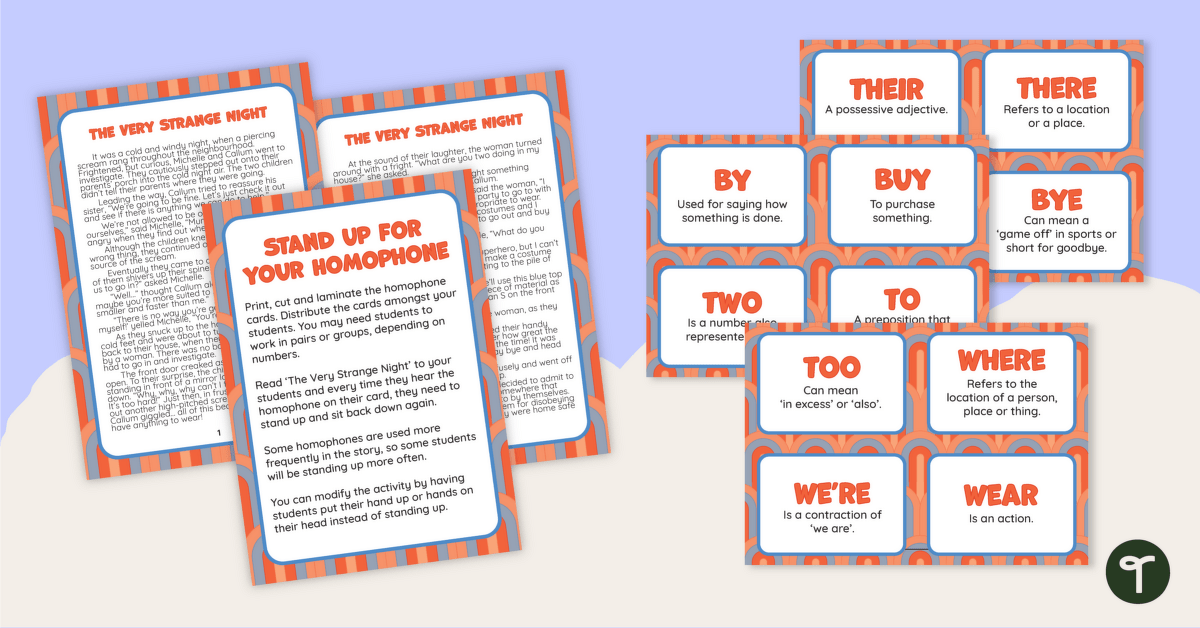

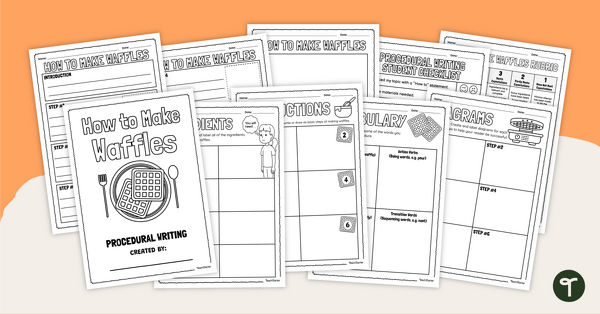
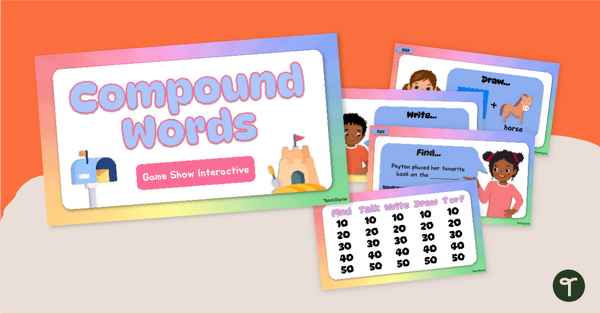
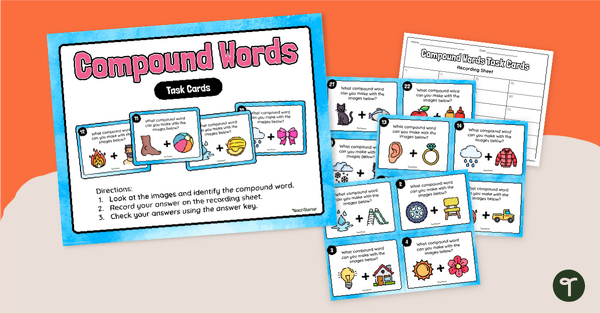
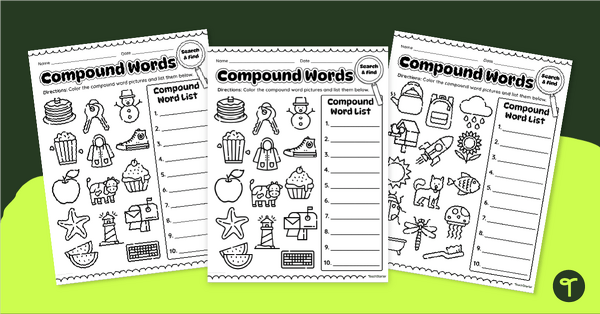
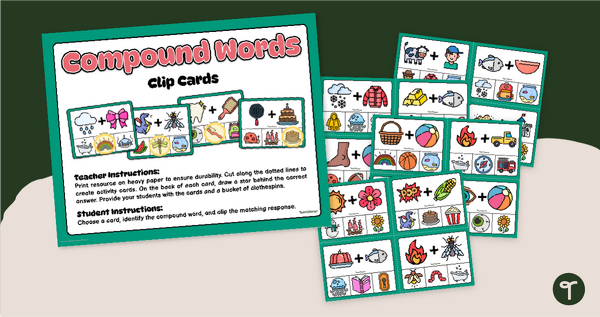
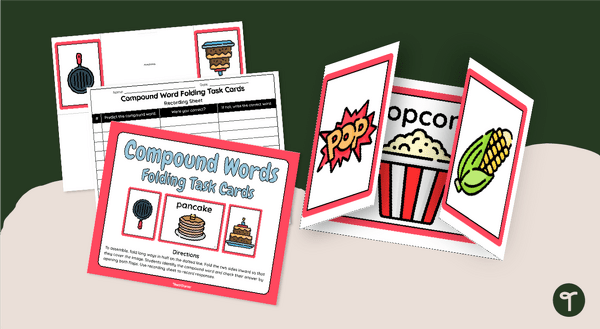
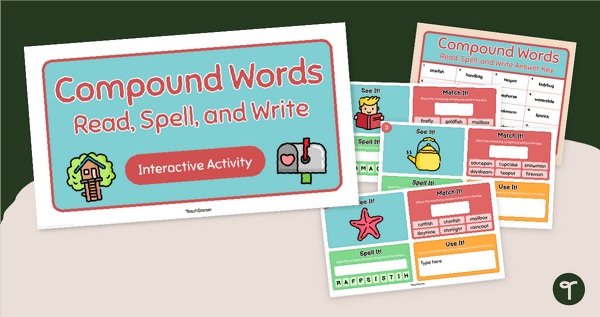
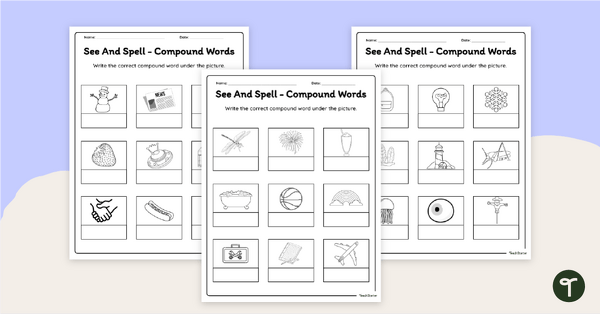
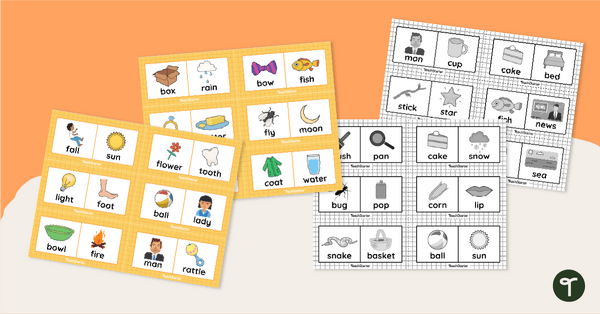
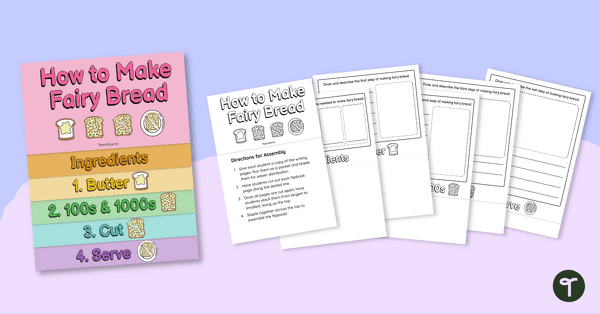
0 Comments
Write a review to help other teachers and parents like yourself. If you'd like to request a change to this resource, or report an error, select the corresponding tab above.